The second session Tsinghua PBC School of Finance held at the 2020 Annual Conference of the Financial Street Forum on October 22 saw an insightful discussion on “Economic Recovery and Reconstruction in the Post-Pandemic Era”.
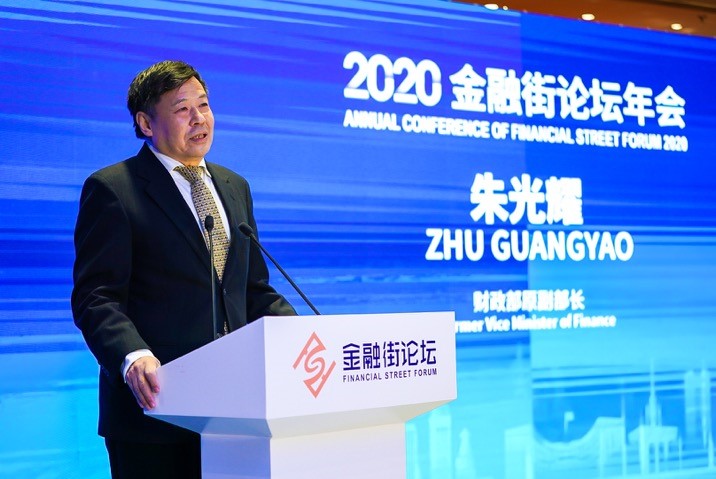
Mr. Zhu Guangyao
Zhu Guangyao, former Vice Minister of Finance, stated that a K shape appeared in post- pandemic economic recovery. According to him, there were four identifiable features: differentiations among countries and regional recoveries; separation between the real economy and the financial markets, especially stock markets; the K shape recovery appeared in income distribution; and there would be an obvious K shape in global governance. Zhu thought that major countries should insist on peaceful coexistence, opening-up and cooperation, multilateralism, dialogue and negotiation, to resolve the challenges in the global governance system, and ensure healthy development in the global economy.
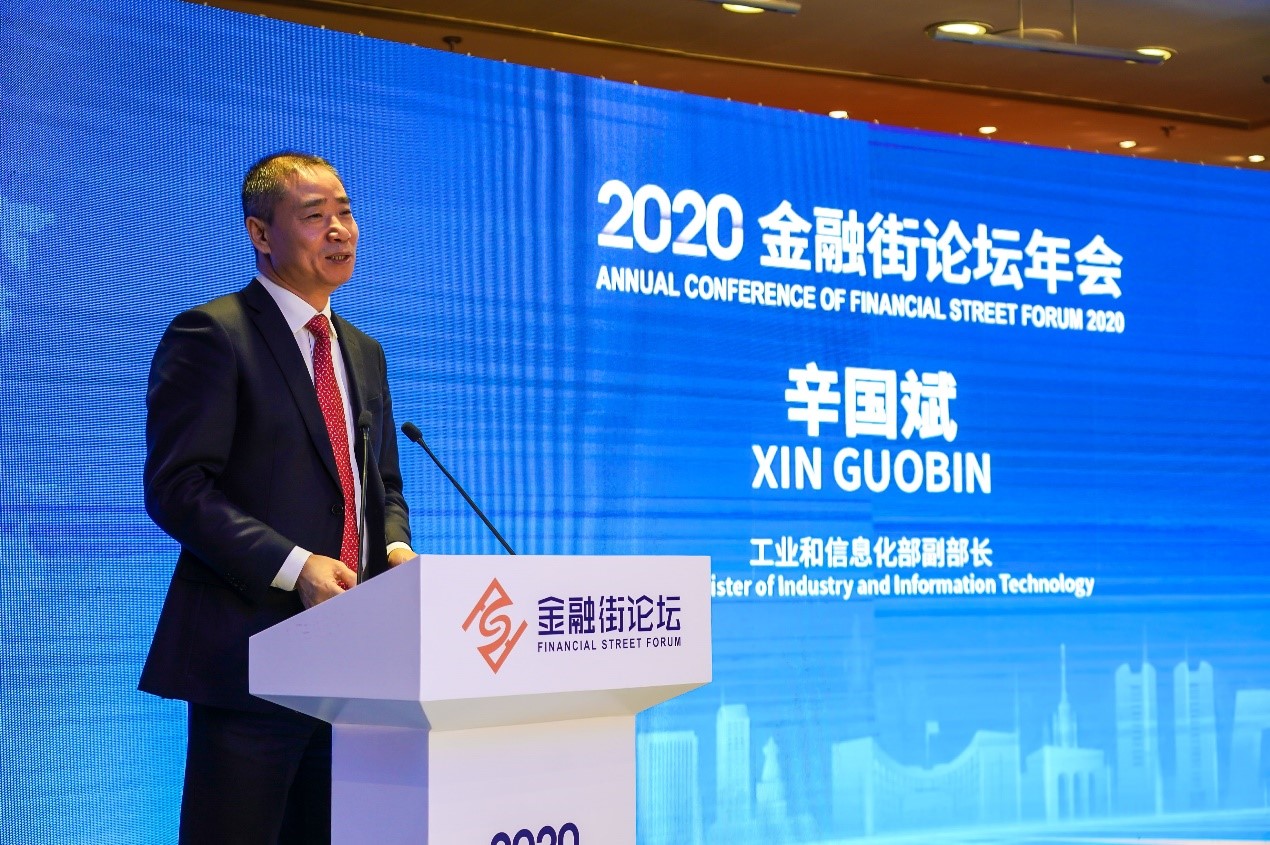
Mr. Xin Guobin
Xin Guobin, Vice Minister of Industry and Information Technology, said that since the pandemic this year, China’s financial administrations had brought up multiple policies to help with recovery and growth in the manufacturing industry. The first three quarters’ year on year value-added growth had increased by 1.7%, showing the strong resilience and vitality of China's manufacturing industry. Xin also stated that, looking at the post-pandemic era, the development environment for the manufacturing industry would be more complex and serious. “We should ensure an industry chain as well as a supply chain, and accelerate the promotion of the fundamental capabilities and industry chain modernism of China’s manufacturing industry,” he added.
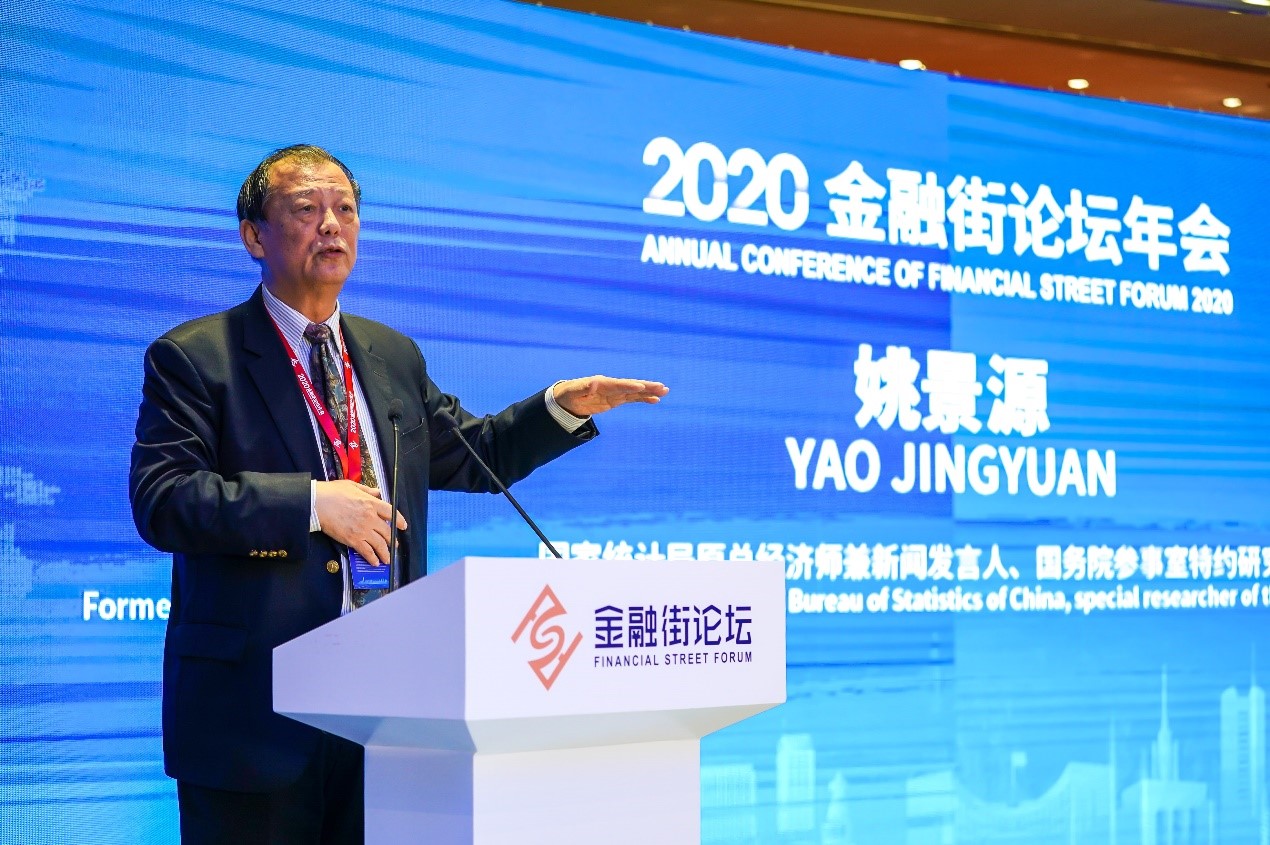
Mr. Yao Jingyuan
In his speech, Yao Jingyuan, former Chief Economist and spokesperson of the National Bureau of Statistics of China, and special researcher of the Counsels’ Office of the State Council, analyzed the four indices of China’s economy, namely, the economic growth rate, unemployment, CPI, and the international income and expenditure balance. Yao said that, despite facing unprecedented difficulties, China had secured hard-earned achievements. Even so, China needed to pay more attention to problems such as inadequate sufficient demand and other economic structural problems, among others, to sustain its economic recovery as there were still many indicators below normal, he added.
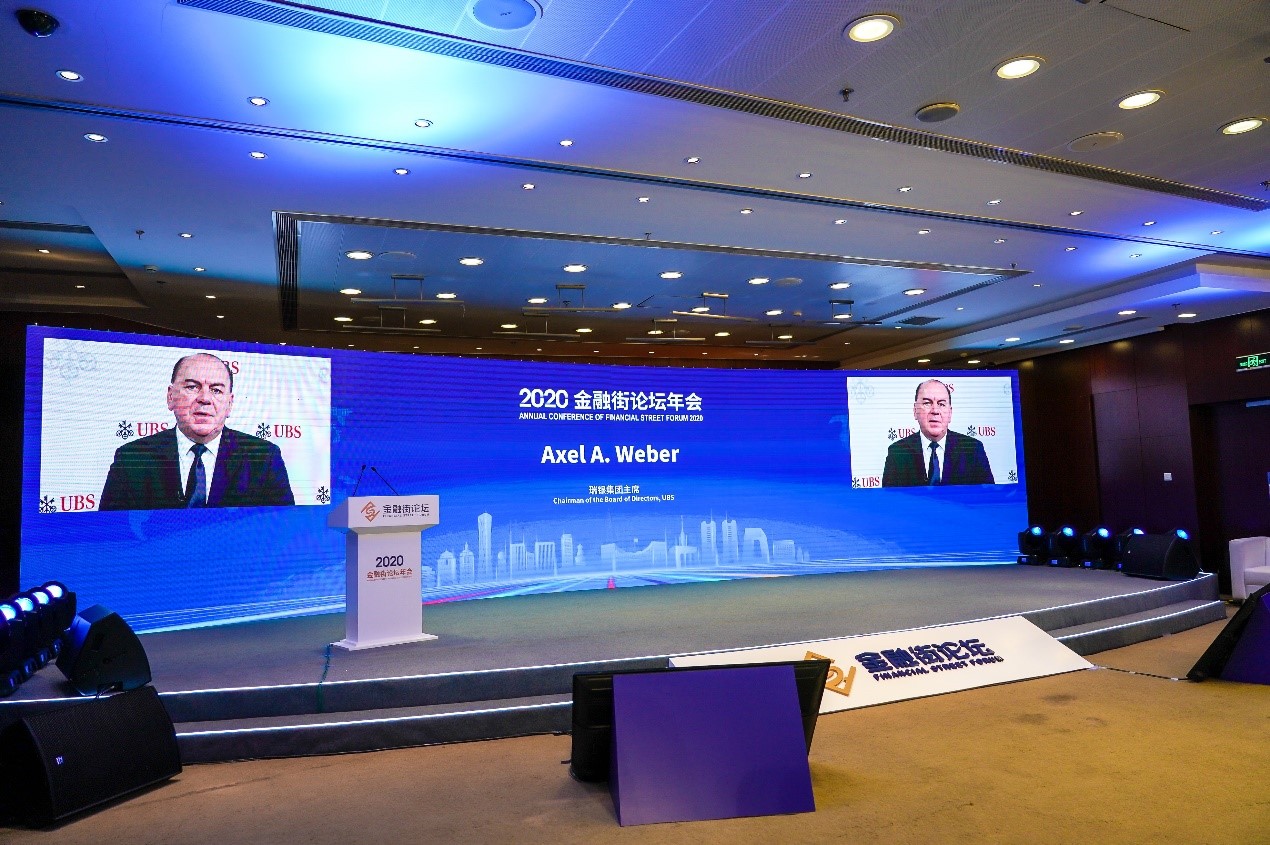
Mr. Axel A. Weber
Axel A. Weber, Chairman of the Board of Directors at UBS, who attended the session online, thought that there was high uncertainty in future economy and policy. He said policy decision makers should be more prepared, based on the current situation, and that China should pay more attention to economic stability rather than GDP growth. Weber emphasized the importance of multilateral co-operation, especially when the world was facing multiple challenges. An innovative co-operation mode needed to be explored to strengthen the dialogue between countries, institutions, and different industries, he added. Weber also praised China for loosening financial restrictions on foreign investment, and further opening up its economy. He thought the high-speed economic development in China would bring numerous innovative opportunities.
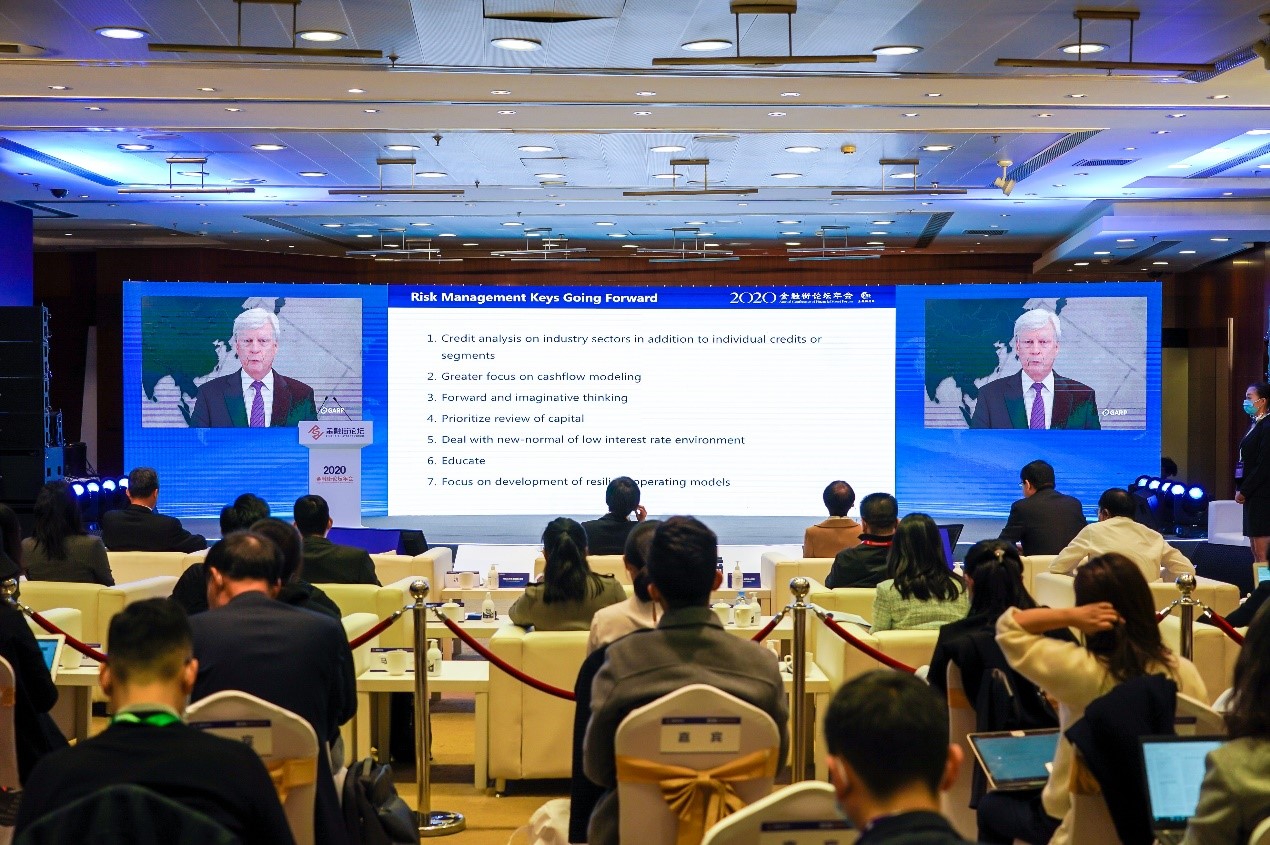
Mr.Richard Apostolik
Richard Apostolik, President and Chief Executive Officer at the Global Association of Risk Professionals, also joined the session online, and shared his ideas from three aspects: global outlook, risk management, and how to ensure enterprises’ stress resistance. Apostolik thought that global liquidity and financial support should be further strengthened, and traditional central banks and governments needed to make relevant changes and increase coordination. Apostolik emphasized that, while ensuring adequate liquidity, efforts should be taken to strengthen banks’ risk management, thus further ensuring global financial stability. With regard to enterprise development, Apostolik thought that enterprises should quantify enterprises’ stress resistance, adjust the speed and capability of the reflection to changes, and promote the efficiency and resistance of company operations.
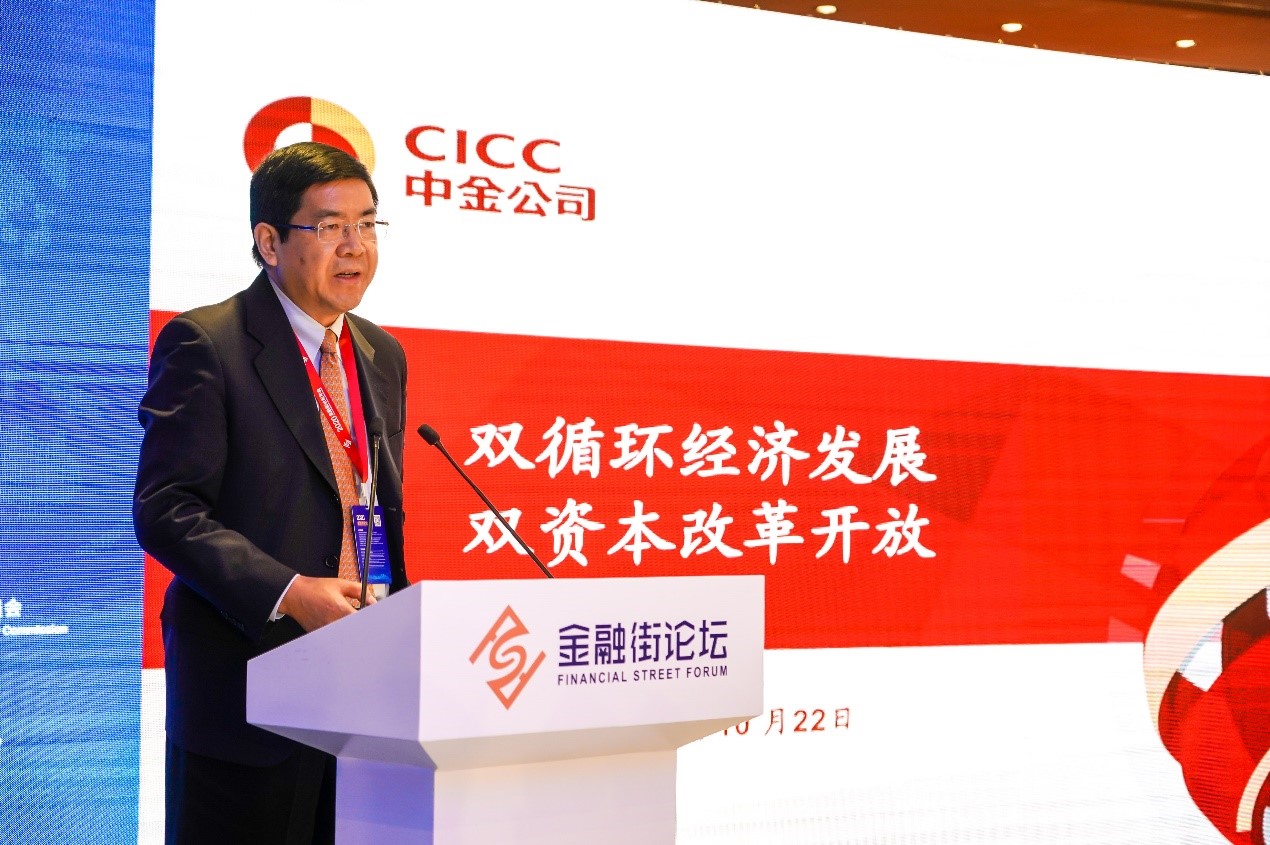
Mr. Huang Haizhou
Huang Haizhou, Managing Director and member of the Management Committee of China International Capital Corporation Limited, shared his insights on the topic of “dual circulation economic development, dual capital reform and open-up”. He said that the capital market could play a significant role in the post-pandemic recovery. He also brought up the concept of “dual capital”, which meant taking the actions of opening-up under capital account supplemented by reforms in the domestic capital market. “China’s economy is still on the road of transformation and upgrading. Through dual capital reform and opening up, we could build a big and strong market,” he added.
Hao Zhou, Unigroup Chair Professor of Finance and Associate Dean of Tsinghua PBCSF, presided over the session.
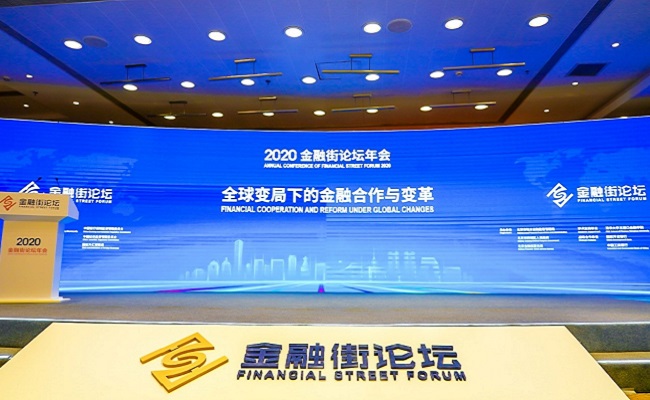
With the theme of “Financial Cooperation and Reform under Global Changes”, the Annual Conference of the Financial Street Forum 2020 was jointly organized by the People’s Government of the Beijing Municipality, the People’s Bank of China, Xinhua News Agency, the China Banking and Insurance Regulatory Commission, the China Securities Regulatory Commission and the State Administration of Foreign Exchanges.
Source: Tsinghua PBC School of Finance
Editors: Guo Lili, Sangeet Sangroula



